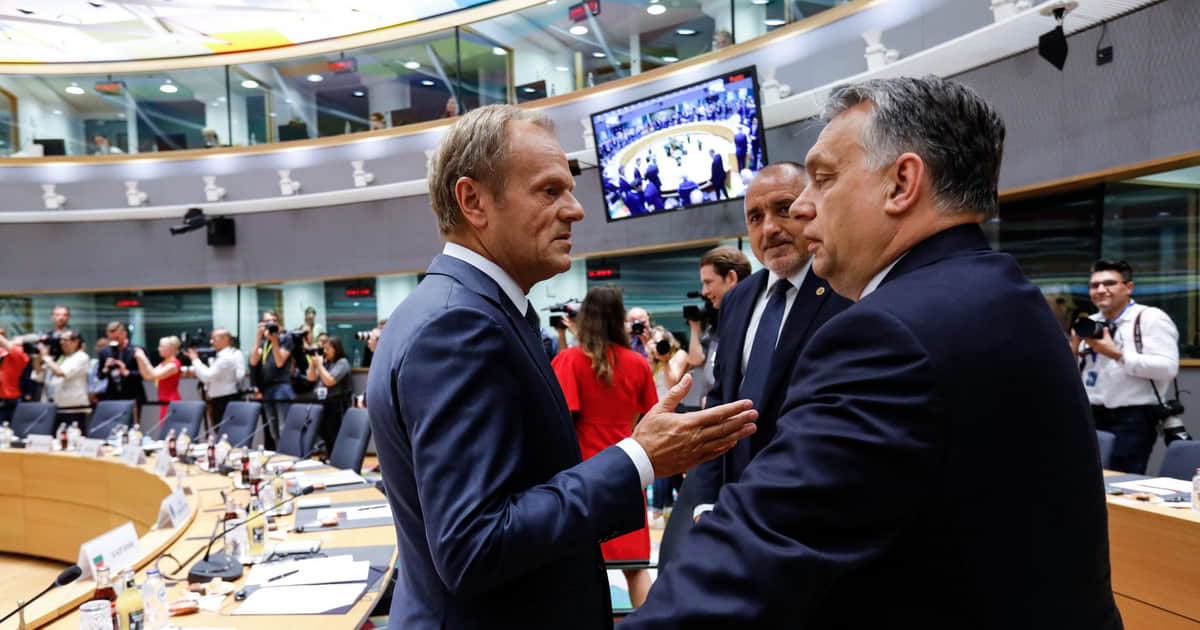Why Orbán took on conflict with Poland and its consequences

Poland and Hungary, which have shown close cooperation within the Visegrad Group in recent years (especially under the leadership of Poland's Law and Justice or PiS), now find themselves on the brink of a diplomatic crisis. The reason for this tension is Hungary's decision to grant political asylum to Marcin Romanowski, a former deputy justice minister and PiS MP, who is wanted by Polish prosecutors on suspicion of misappropriating funds from the Justice Fund. The government of Donald Tusk has openly stated that they view Budapest's decision not only as a diplomatic incident but primarily as a political move aimed at supporting the opposition.
Read more about this incident and its potential consequences in the article by by Stanislav Zhelikhovsky, PhD in political science and international expert - Escape to Orban: why Hungary went into sharp conflict with Poland. Advertisement: Marcin Romanowski found himself in the spotlight in July 2024 when he was arrested on charges of improper distribution of Justice Fund resources.
The fund, managed by the Ministry of Justice, is meant to provide financial support to victims and witnesses and assist those released from detention. Investigations revealed that a significant share of the funds (the exact amount is undisclosed) was used for political or personal purposes rather than social needs. The Polish opposition and independent media had raised concerns about potential financial violations in the Justice Fund even before the 2023 parliamentary elections under the PiS government.
On 9 December 2024, the Warsaw District Court decided to impose a three-month detention on Romanowski. But the politician did not appear in court, and his whereabouts were unknown back then. A few hours later, a photo surfaced showing Romanowski lying in a hospital bed with bloodstains on the sheets and a bandaged nose.
The photos were first published by wPolsce24, a television station linked to PiS. The controversial politician had left hospital of his own volition on 6 December, three days before the court's decision. On the same day the photo was released, Romanowski had been in Hungary for at least 24 hours.
On 19 December, Romanowski's lawyer, Bartosz Lewandowski, announced that the Hungarian government had granted the Polish politician international protection under asylum law. In response to Budapest's actions, Poland's Ministry of Foreign Affairs declared that it considers Orban's decision "an unfriendly act towards the Republic of Poland and one that contradicts the basic principles applied to EU member states." The ministry also stated that "if Hungary fails to fulfil its European obligations," Poland will appeal to the European Commission to initiate proceedings against Hungary under Article 259 of the Treaty on the Functioning of the European Union.
For Donald Tusk's coalition, this matter has become a tool to demonstrate the previous government's corruption. For PiS, it is yet another opportunity to consolidate its supporters around the idea of "political persecution" ahead of the presidential elections. Viktor Orban has long been considered a PiS ally on the international stage.
Their cooperation is based on mutual criticism of the European Union, a shared desire for member state sovereignty, and distrust of Brussels' liberal policies. Orban is effectively supporting the Polish opposition in its efforts to return to power. The conflict also has a geopolitical dimension.
At a time when Europe faces numerous challenges - from Russia's war against Ukraine to other threats from Moscow - an internal EU conflict between two neighbouring countries only plays into the hands of the Russian dictator.
If you notice an error, select the required text and press Ctrl + Enter to report it to the editors.